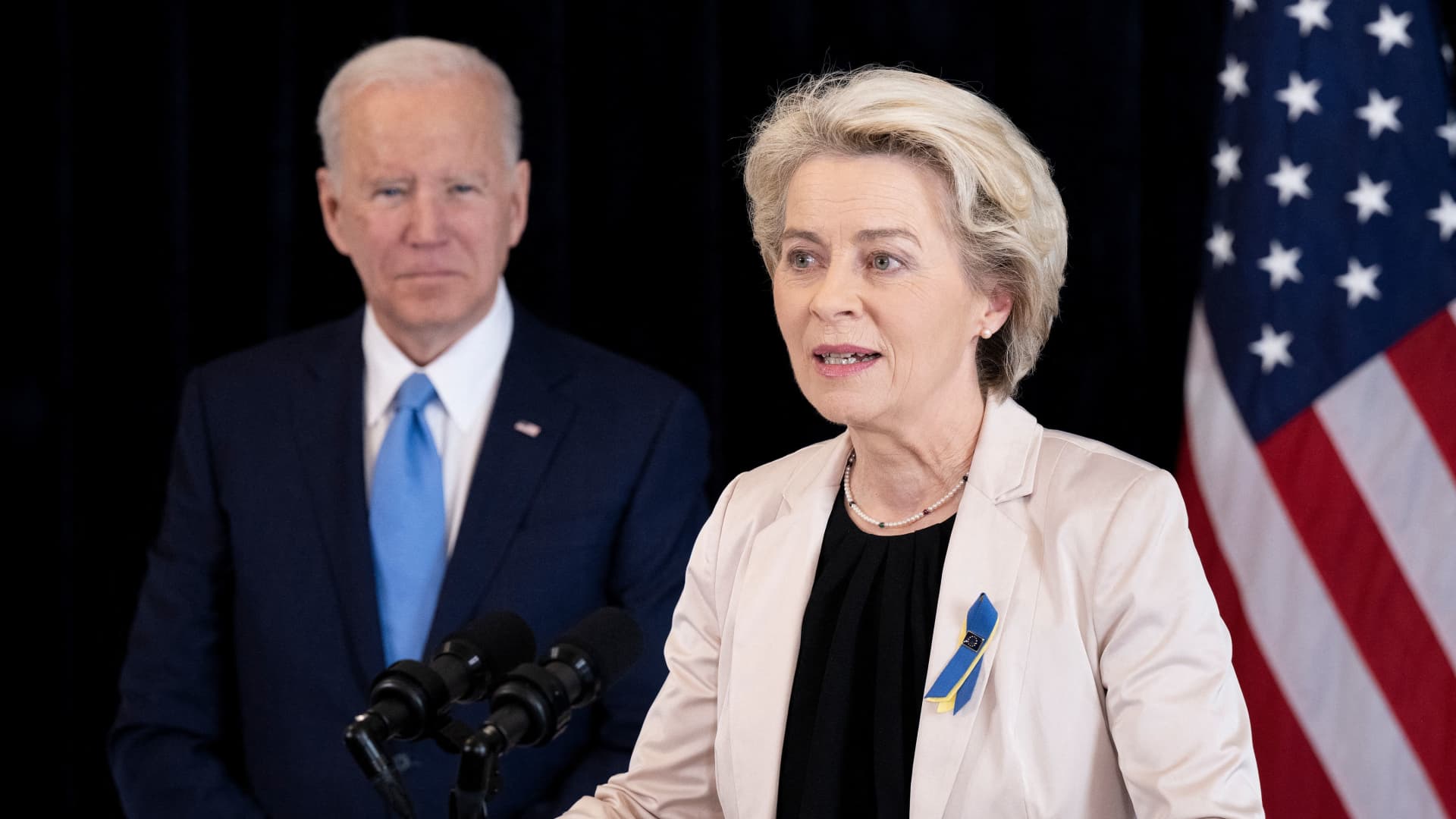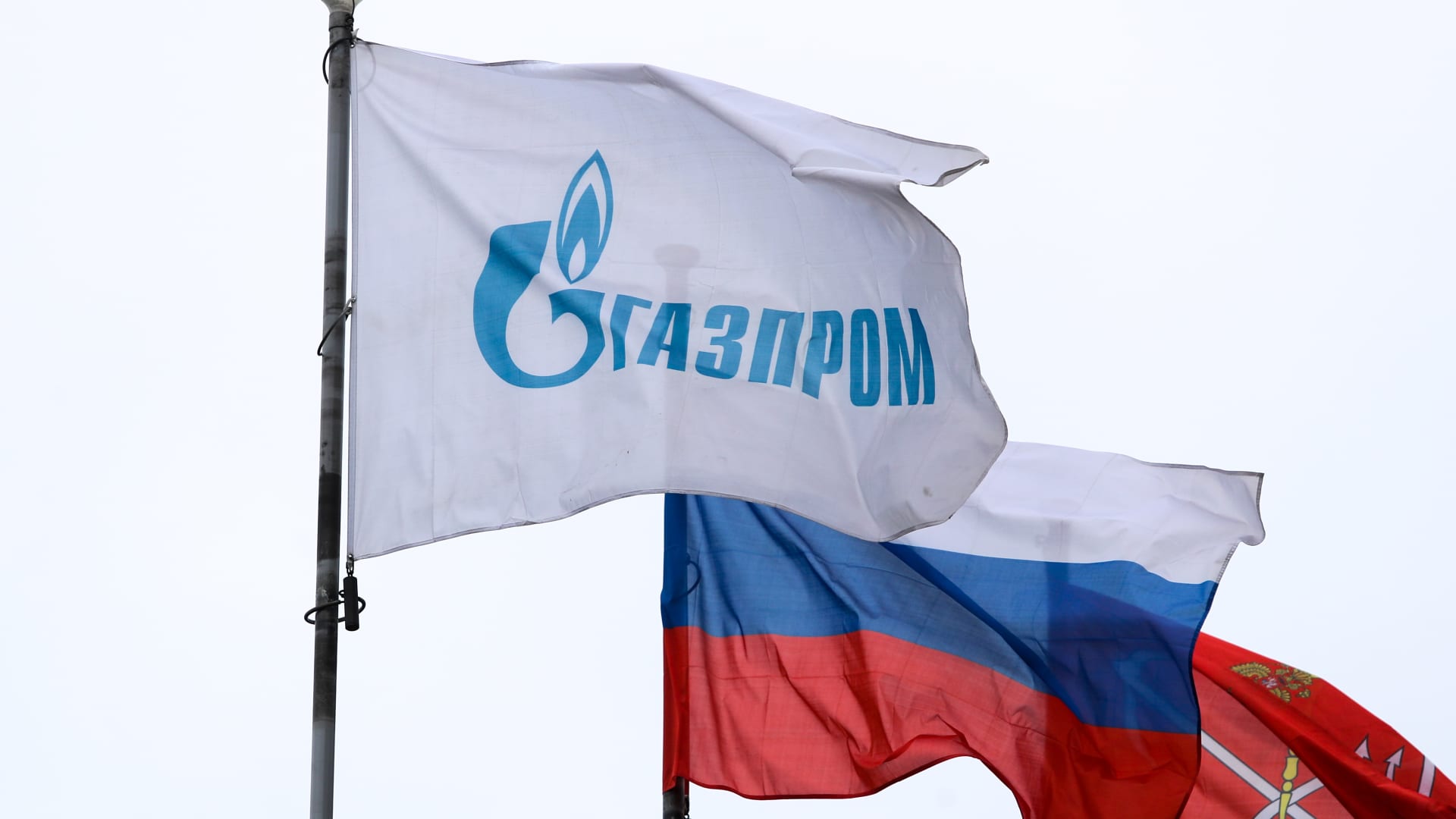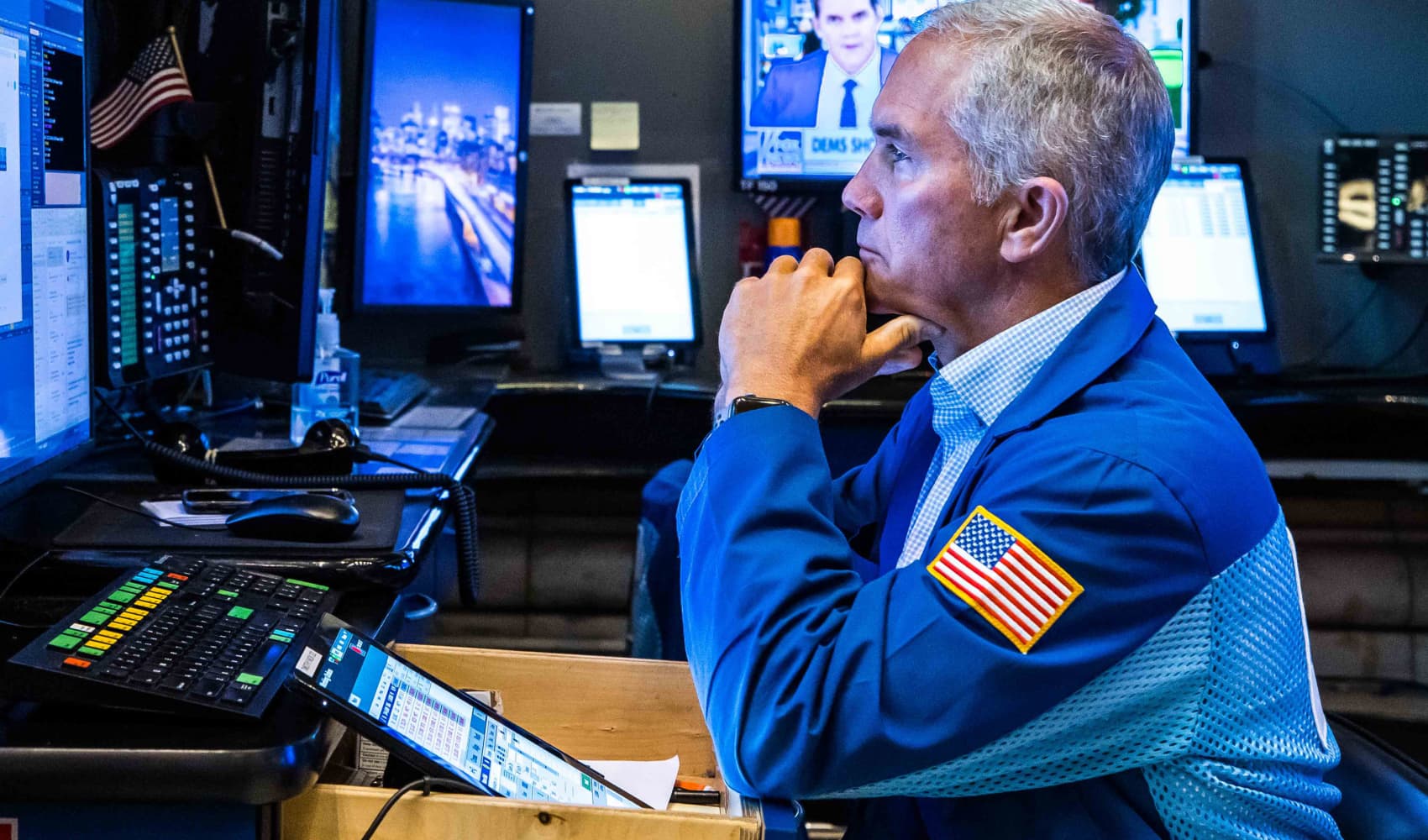
Here are the most important news, trends and analysis that investors need to start their trading day:
- Wall Street looks to end a volatile week on a high note
- EU strikes gas deal with the U.S. to cut reliance on Russia
- Biden heads to Poland to address human cost of Ukraine war
- Russia considers selling energy for bitcoin to mitigate sanctions
- EU targets Big Tech with rules aimed at curbing their power
1. Wall Street looks to end a volatile week on a high note
Get Boston local news, weather forecasts, lifestyle and entertainment stories to your inbox. Sign up for NBC Boston’s newsletters.
U.S. stock futures rose Friday as the S&P 500 and the Nasdaq tracked for their second straight positive week. The Dow Jones Industrial Average was slightly negative for the week heading into Friday. Wall Street has been on a roller coaster — dropping on Monday after the prior week's best weekly performance since November 2020 and then alternating between gains and losses and gains Tuesday through Thursday. The 10-year Treasury yield on Friday remained elevated at nearly 2.37%, while U.S. oil prices dipped roughly 2.5% to around $110 per barrel.
2. EU strikes gas deal with the U.S. to cut reliance on Russia

The United States and the EU on Friday announced a new partnership to reduce Europe's reliance on Russian energy, the start of a yearslong effort to further isolate Moscow after its invasion of Ukraine. Under the plan, the U.S. and other nations will increase liquified natural gas exports to Europe by 15 billion cubic meters this year. Even larger shipments will be delivered in the future. Energy is a key source of income and political leverage for the Kremlin, which supplies the EU with roughly 40% of its LNG via Russian pipelines, several of which run through Ukraine.
Money Report
3. Biden heads to Poland to address human cost of Ukraine war

Following a day of NATO and G-7 summits in Brussels, President Joe Biden is set to travel to Poland on Friday — the second leg of his emergency trip to Europe, one month into Russia's unprovoked attack on Ukraine. The president will be meeting with his Polish counterpart about the worsening humanitarian crisis as more than 3.7 million refugees have fled war-torn Ukraine, the bulk of them crossing the border into Poland. On Thursday, Biden announced the U.S. is prepared to commit more than $1 billion in humanitarian assistance to help aid Ukrainians still inside the country and those who have become refugees.
4. Russia considers selling energy for bitcoin to mitigate sanctions

Russia is considering accepting bitcoin as payment for its oil and natural gas exports as Moscow finds itself more and more isolated under stiffening sanctions from Western countries over its Ukraine aggression. The chair of Russia's legislative committee on energy said in translated remarks Thursday that alternative ways of payment for energy when it comes to "friendly" countries such as China or Turkey could include the national fiat currency of the buyer and bitcoin. Commodities traded worldwide are largely transacted in the U.S. dollar or the euro.
5. EU targets Big Tech with rules aimed at curbing their power

The European Union agreed on landmark new antitrust regulations that could dramatically reshape how U.S. technology giants — such as Facebook parent Meta Platforms, Apple, Amazon and Alphabet unit Google — conduct business in the bloc. A key aim of the reforms is to prevent Big Tech from abusing their market position to harm smaller rivals. So-called gatekeepers that violate the rules would face potential fines of up to 10% of their global revenues. While a finalized version of the legislation still needs to be officially adopted, it could take effect as early as October.
— CNBC reporters Sam Meredith, Christina Wilkie, MacKenzie Sigalos and Ryan Browne as well as The Associated Press and Reuters contributed to this report.
— Sign up now for the CNBC Investing Club to follow Jim Cramer's every stock move. Follow the broader market action like a pro on CNBC Pro.






